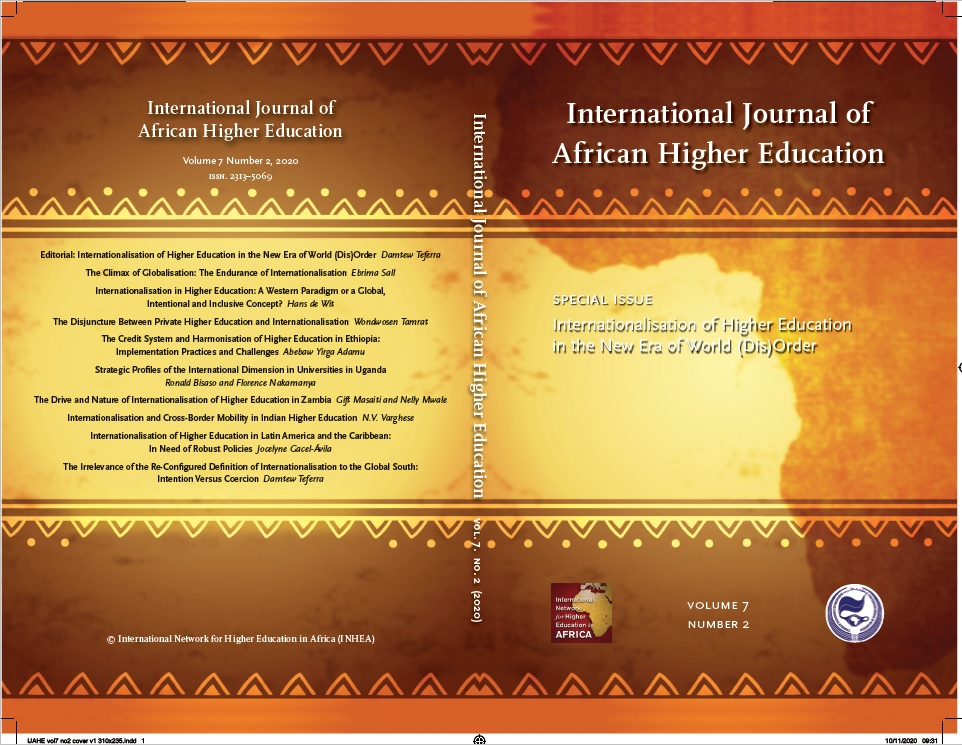The Climax of Globalisation:
the Endurance of Internationalisation
DOI:
https://doi.org/10.6017/ijahe.v7i2.12889Abstract
This article examines the contradictory trends in globalisation and
their impact on internationalisation in higher education. It argues
that the rapid global spread of the COVID-19 pandemic, that has
posed one of the most formidable challenges to globalisation and
internationalisation, was made possible precisely because of the advanced
stage of development that globalisation had reached. The lockdowns
and near total restriction on international mobility, closure of schools
and universities, and other effects and responses to the pandemic
add to the restrictions on internationalisation imposed by conservative
regimes in the North and the South. The article focuses on three
issues: i) the contradictory trends in globalisation as relevant to internationalisation;
ii) Trumpism and deepening neoliberal globalisation; and
iii) networks and institutions in promoting internationalisation in the
Global South. It argues that Trumpism and Brexit involve a renegotiation
of the terms of engagement and attempts to reposition and re-assert the
hegemony of certain players in the global economy. The article argues
that, although certain aspects of internationalisation in higher education
have become more difficult to preserve, it has deepened in other ways and
taken new forms, thanks to the extensive use of new communications
media and technologies. Internationalisation has not always been, and
will not always be, ‘intentional’, but it can be harnessed to being about a
more equitable form of globalisation.
Downloads
Published
How to Cite
Issue
Section
License
Copyright (c) 2020 Ebrima Sall

This work is licensed under a Creative Commons Attribution-NonCommercial-NoDerivatives 4.0 International License.

